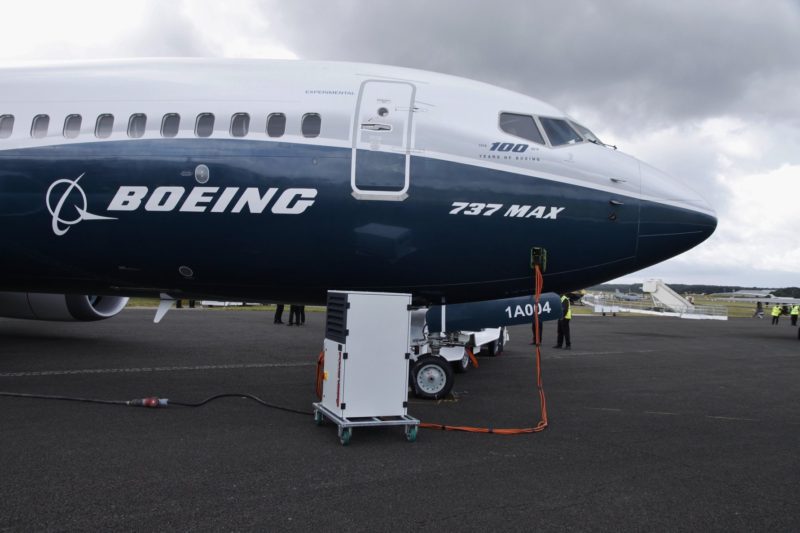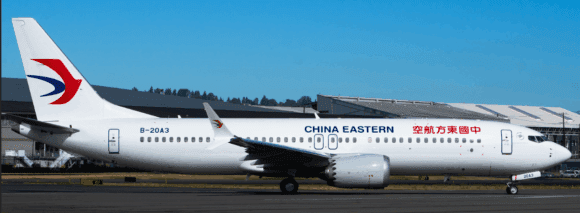
BoeingMAX8 e1567099359403
Boeing has settled with the US Securities and Exchange Commission (SEC) to pay a $200 million fee for misleading public statements after the two fatal accidents of the MAX in October 2018 and March 2019. Former Boeing President and CEO Dennis Muilenburg will pay $1 million, SEC announced on September 22. Both have put profits over people, the SEC says. Boeing settles with SEC for misleading investors about MAX.
The SEC holds Boeing and its former CEO accountable for misconduct in its obligation to inform investors correctly and negligently violating the antifraud provisions of federal securities laws after the two accidents.
The first accident happened with a Lion Air flight 610 MAX 8 in October 2018, and the second in March 2019 when an Ethiopian MAX 8 went down in flight 302. In both accidents, investigators identified the Maneuvering Characteristics Augmentation System (MCAS) as instrumental in making the aircraft uncontrollable. The MAX was only recertified in December 2020 after Boeing was forced to make extensive modifications to the flight control system.
The SEC says that Boeing and Muilenburg knew “that MCAS posed an ongoing airplane safety issue, but nevertheless assured the public that the 737 MAX airplane was “as safe as any airplane that has ever flown the skies.” After the Ethiopian accident, Boeing and Muilenburg again said that there were no issues in the certification process of the MCAS system.
Boeing and Muilenburg ”misled investors by providing assurances about the safety of the 737 MAX, despite knowing about serious safety concerns. The SEC remains committed to rooting out misconduct when public companies and their executives fail to fulfill their fundamental obligations to the investing public,” SEC Chair Gary Gensler says in a media statement. “In times of crisis and tragedy, it is especially important that public companies and executives provide full, fair, and truthful disclosures to the markets. The Boeing Company and its former CEO, Dennis Muilenburg, failed in this most basic obligation.” Muilenburg was ousted in late 2019 and left Boeing with $62 million in compensation and was succeeded by David Calhoun.
Selectively highlighting facts
The SEC points to a press release in October 2018 that it says was edited and approved by Muilenburg “that selectively highlighted certain facts from an official report of the Indonesian government suggesting that pilot error and poor aircraft maintenance contributed to the crash. The press release also gave assurances of the airplane’s safety, failing to disclose that an internal safety review had determined that MCAS posed an ongoing “airplane safety issue” and that Boeing had already begun redesigning MCAS to address that issue, according to the SEC’s orders.”
Five months later, after the crash of Ethiopian flight 302 and the decision of all international regulators to ground the MAX, Muilenburg kept defending MCAS when he told analysts and reporters that “there was no surprise or gap . . . that somehow slipped through [the] certification process” for the 737 MAX. He added that Boeing had “gone back and confirmed again . . . that we followed exactly the steps in our design and certification processes that consistently produce safe airplanes.”
Gurbir Grewal, Director of the SEC Enforcement Division, strongly accused Boeing and Muilenburg of putting “profits over people by misleading investors about the safety of the 737 MAX all in an effort to rehabilitate Boeing’s image following two tragic accidents that resulted in the loss of 346 lives and incalculable grief to so many families. (…) But public companies and their executives must provide accurate and complete information when they make disclosures to investors, no matter the circumstances. When they don’t, we will hold them accountable, as we did here.”
The SEC says that Boeing and Muilenburg, without admitting or denying the SEC’s findings, consented to cease-and-desist orders and accept the penalties. A Fair Fund will be established for the benefit of harmed investors.
It is not the first time that Boeing has settled on the MAX case. In January 2021, the airframer settled for $2.51 billion with the US Department of Justice, of which the majority was for compensation to airlines and lessors ($1.77 billion). Part of the settlement was the establishment of a fund of $500 million to compensate the relatives of the victims. Another $243.6 million is a fine.
Views: 1



